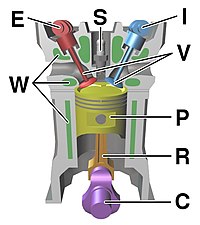
Multi-Response Optimization of Turning Parameters during Machining of EN-24 Steel with SiC Nanofluids Based Minimum Quantity Lubrication
Sign Up to like & getrecommendations! Published in 2019 at "Silicon"
DOI: 10.1007/s12633-019-00102-y
Abstract: In manufacturing industry, the expenses for cutting fluids are about 7 to 17% of total production cost. The cutting fluids increase the health hazards as well as can cause a lot of environmental problems. In… read more here.
Keywords: turning parameters; minimum quantity; quantity lubrication; optimization turning ... See more keywords

Taguchi optimization of minimum quantity lubrication turning of AISI-4320 steel using biochar nanofluid
Sign Up to like & getrecommendations! Published in 2020 at "Biomass Conversion and Biorefinery"
DOI: 10.1007/s13399-020-01111-3
Abstract: In this research work, the effect of minimum quantity lubrication (MQL) parameters on the material removal rate and surface roughness of AISI-4320 steel using biochar nanofluid in turning process was studied. The main aim of… read more here.
Keywords: using biochar; minimum quantity; biochar nanofluid; process ... See more keywords

Performance of silver nanofluids with minimum quantity lubrication in turning on titanium: a phase to green manufacturing
Sign Up to like & getrecommendations! Published in 2020 at "Journal of the Brazilian Society of Mechanical Sciences and Engineering"
DOI: 10.1007/s40430-020-02277-7
Abstract: Nowadays industries are looking forward for a sustainable manufacturing. Nanofluid with minimum quantity lubrication is one technology in the areas of green manufacturing, which minimizes the pollution caused to the environments. The aim of this… read more here.
Keywords: lubrication turning; quantity lubrication; minimum quantity; green manufacturing ... See more keywords

Comparative study of minimum quantity lubrication and dry drilling of CFRP/titanium stacks using TiAlN and diamond coated drills
Sign Up to like & getrecommendations! Published in 2020 at "Composite Structures"
DOI: 10.1016/j.compstruct.2019.111727
Abstract: Abstract Although minimum quantity lubrication (MQL) has been proved beneficial for the machinability improvement of metallic materials, it is still not well understood whether or not to use the MQL when machining the composite-titanium stacks… read more here.
Keywords: mql; titanium stacks; minimum quantity; cfrp ... See more keywords

Parameter optimization during minimum quantity lubrication milling of TC4 alloy with graphene-dispersed vegetable-oil-based cutting fluid
Sign Up to like & getrecommendations! Published in 2019 at "Journal of Cleaner Production"
DOI: 10.1016/j.jclepro.2018.11.147
Abstract: Abstract Minimum Quantity Lubrication has been widely used in the titanium alloy milling process as an advanced and clean means of cooling and lubrication. The Minimum Quantity Lubrication parameters have a significant influence on the… read more here.
Keywords: tc4 alloy; milling characteristics; lubrication; quantity lubrication ... See more keywords
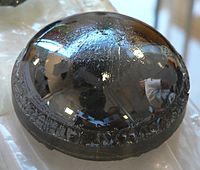
Experimental evaluation of an eco-friendly grinding process combining minimum quantity lubrication and graphene-enhanced plant-oil-based cutting fluid
Sign Up to like & getrecommendations! Published in 2020 at "Journal of Cleaner Production"
DOI: 10.1016/j.jclepro.2019.118747
Abstract: Abstract Minimum Quantity Lubrication (MQL) is increasingly applied in the grinding process of the hard-to-cut material (HCM) as an eco-friendly and efficient technology of lubricating and cooling. The grinding characteristics of the HCM directly affect… read more here.
Keywords: graphene enhanced; graphene; minimum quantity; quantity lubrication ... See more keywords
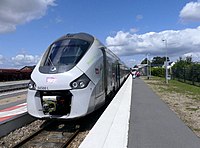
Supercritical carbon dioxide and minimum quantity lubrication in pendular surface grinding – A feasibility study
Sign Up to like & getrecommendations! Published in 2021 at "Journal of Cleaner Production"
DOI: 10.1016/j.jclepro.2021.126560
Abstract: Abstract Economic and environmental disadvantages of conventional cutting fluids based on mineral oil drive the research for alternative methods such as dry cutting, cutting with alternative cutting fluids and/or minimum quantity lubrication. Oil-in-air minimum quantity… read more here.
Keywords: supercritical carbon; lubrication; quantity lubrication; carbon dioxide ... See more keywords

Performance evaluation of castor oil-ethanol blended coolant under minimum quantity lubrication turning of difficult-to-machine materials
Sign Up to like & getrecommendations! Published in 2020 at "Journal of Manufacturing Processes"
DOI: 10.1016/j.jmapro.2020.07.058
Abstract: Abstract A recent trend in the processing of difficult-to-machine materials is the replacement of traditional coolants with vegetable oil, which is environmentally friendly. In this study, a new type of blended coolant that is suitable… read more here.
Keywords: blended coolant; minimum quantity; castor oil; quantity lubrication ... See more keywords
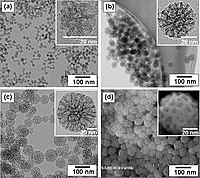
A review on nanofluids in minimum quantity lubrication machining
Sign Up to like & getrecommendations! Published in 2021 at "Journal of Manufacturing Processes"
DOI: 10.1016/j.jmapro.2021.05.028
Abstract: Abstract Nanofluids in minimum quantity lubrication (MQL) machining is gaining grounds with environment consciousness enhanced laws and regulations consummated. Researchers have worked upon several aspects related to the characteristics and applications of nanofluids in MQL… read more here.
Keywords: lubrication; quantity lubrication; nanofluids minimum; minimum quantity ... See more keywords

Effect of magneto rheological minimum quantity lubrication on machinability, wettability and tribological behavior in turning of Monel K500 alloy
Sign Up to like & getrecommendations! Published in 2020 at "Machining Science and Technology"
DOI: 10.1080/10910344.2020.1765179
Abstract: Abstract The proposed work deals with the investigation of magnetorheological based minimum quantity lubrication of graphene oxide (GO) based jojoba oil as bio-lubricant on machinability and tool wear mechanism of turning Monel K500 alloy. Experiments… read more here.
Keywords: lubrication; minimum quantity; turning monel; quantity lubrication ... See more keywords
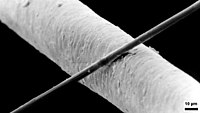
Performance evaluation of AlTiN coated carbide tools during machining of ceramic reinforced Cu-based hybrid composites under cryogenic, pure-minimum quantity lubrication and dry regimes
Sign Up to like & getrecommendations! Published in 2022 at "Journal of Composite Materials"
DOI: 10.1177/00219983221115846
Abstract: In this study, the machining performance of 10 wt.% B-Ti-SiCp particles reinforced Cu-based hybrid composites were investigated under dry, minimum quantity lubrication (MQL) and cryogenic LN2 assisted environments during milling. In-depth analyses comprising of tool… read more here.
Keywords: minimum quantity; hybrid composites; reinforced based; quantity lubrication ... See more keywords